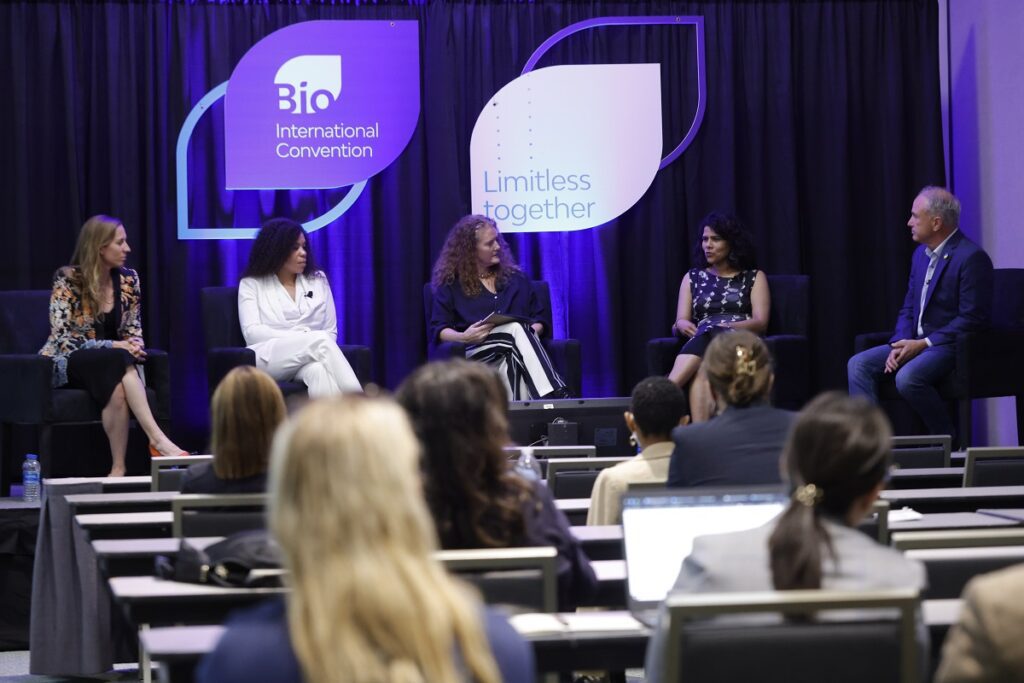Biotechnology as a sector has a massive impact on Environmental, Social, and Governance (ESG) issues, but one area of growing importance to biotech is the connection between the environmental and social aspects, according to participants in yesterday’s panel on “Harnessing the Power of Biotechnology on ESG Issues,” at the BIO International Convention.
The two are connected because the quality of the environment has an impact on the quality of life of society, the panelists said.
Sponsored by Amgen, and led by moderator Lori Didion Hunt, Executive Director Corporate Affairs, ESG at Amgen, this panel also included Olivia Albrecht, Chief Sustainability Officer at Aspiration; Sarah Fortt, Partner at Latham & Watkins; Vrushali Gaud of Accenture; and Thomas Tighe, President & CEO at Direct Relief.
Access to energy, health impacts and infrastructure are some of the areas of increased focus when we address climate change, and panelists spoke of how biotech can relieve pressure in these areas.
According to Sarah Fortt, the industry can use biotech’s ability to address climate change and turn a human tragedy, which is already causing problems like climate migration, into a human triumph.
Approaching challenges from the perspective of ESG can provide a creative means for addressing risk and opportunity, especially when things are overlapping, like supply chain issues during the pandemic, she pointed out, adding that ESG’s goal goes beyond climate and supporting humanitarian efforts.
“This is where ESG goes from being a child to being an adolescent,” Fortt said.
The biggest changes will come from investment and innovations in biotechnology, with capital allocations having a massive impact on sustainable investment and finance, said Olivia Albrecht. She noted that the science and ability an organization can deliver will have value to humans, offering commercial possibilities as well as the opportunity to make a positive impact on ESG.




